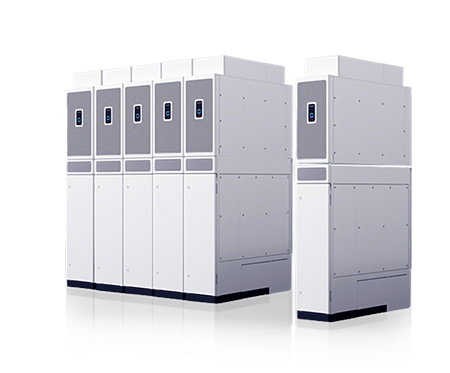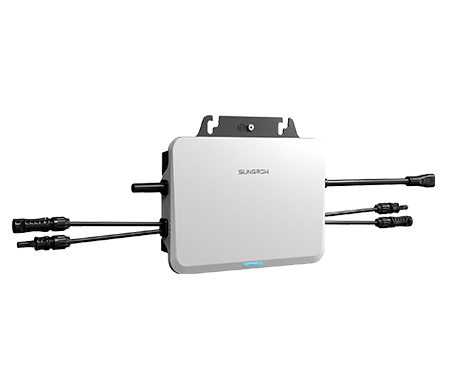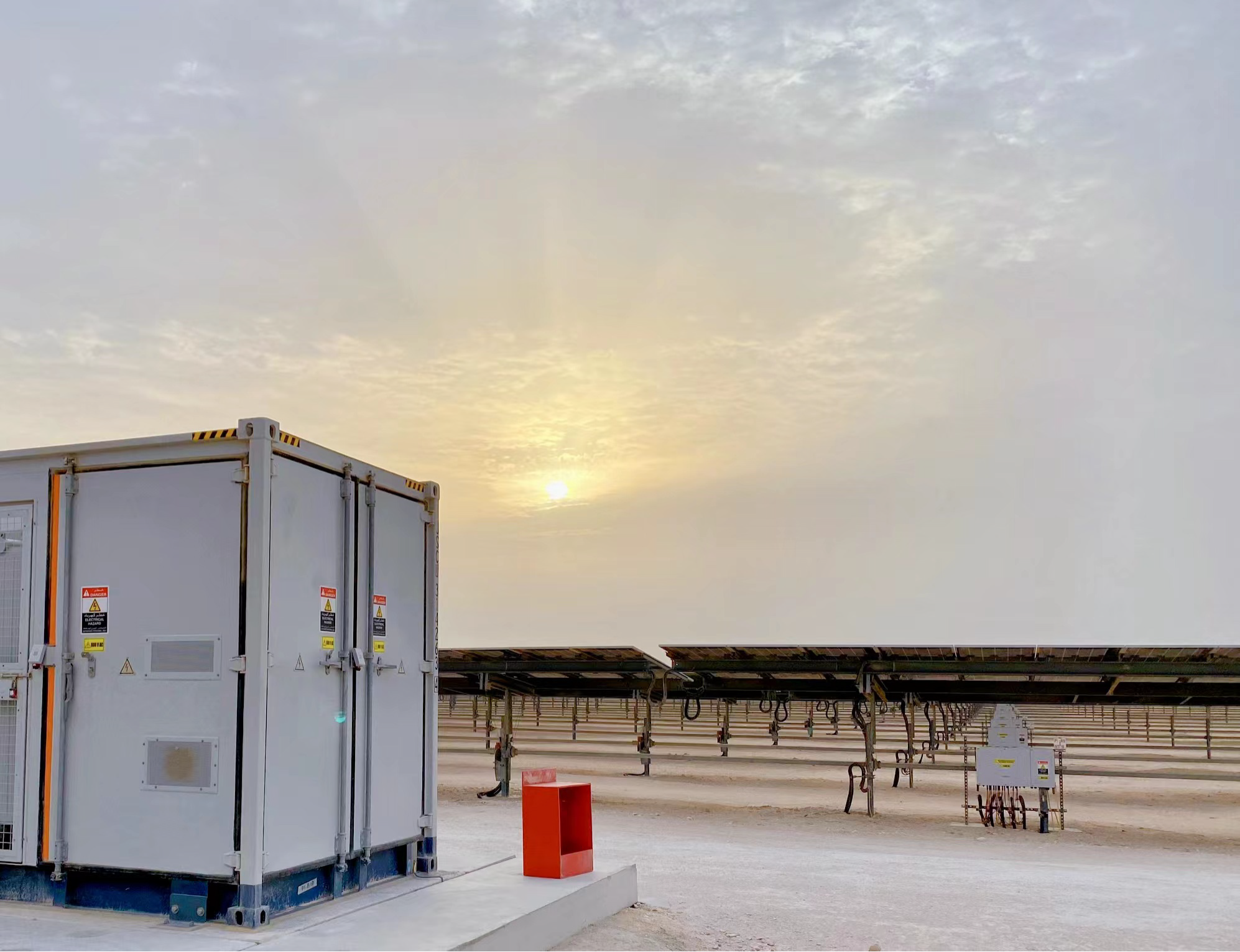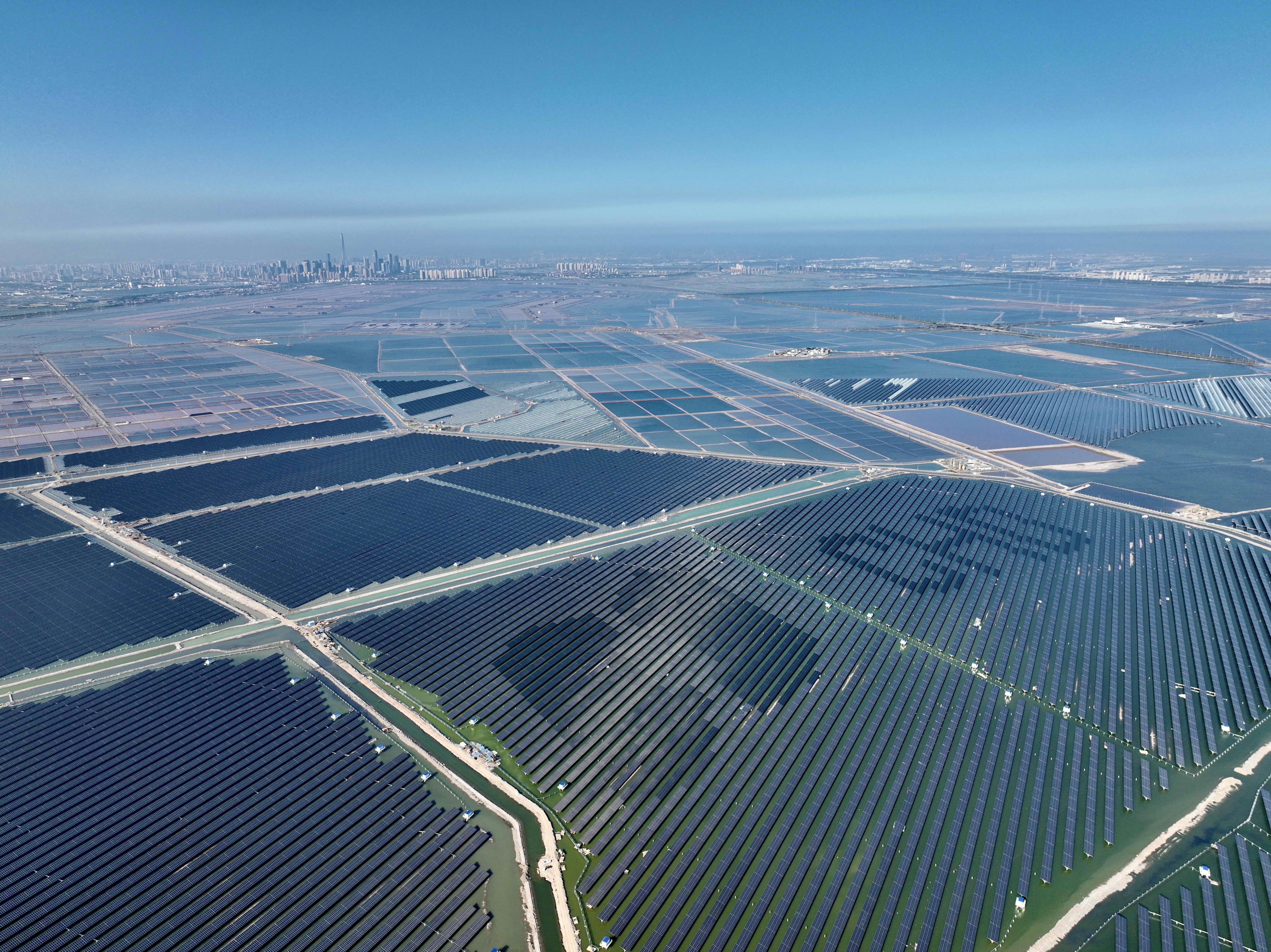
Largest Solar-Salt Complementary Project: 100W kW PV Plant in China
Location:
Tianjin, China
Capacity:
1,000 MW
COD Time:
2023. 07
The Background
The Tianjin Huadian Haijing 1,000 MW "Salt-Alkali Light Complementary" Power Station is the world's largest standalone project of its kind. To achieve the goals of "carbon peak and carbon neutrality," the "solar-salt complementary" photovoltaic power generation project aims to fully exploit and utilize Tianjin's solar energy resources. It seeks to develop green and environmentally friendly new energy sources, appropriately enhance the local power grid's supply capacity, alleviate power shortages, promote and drive local economic development, while effectively utilizing the land resources of salt farms.
The Challenges
To achieve the goals, Sungrow needs to overcome the challenges posed by the highly humid and corrosive environment of the coastal salt fields.
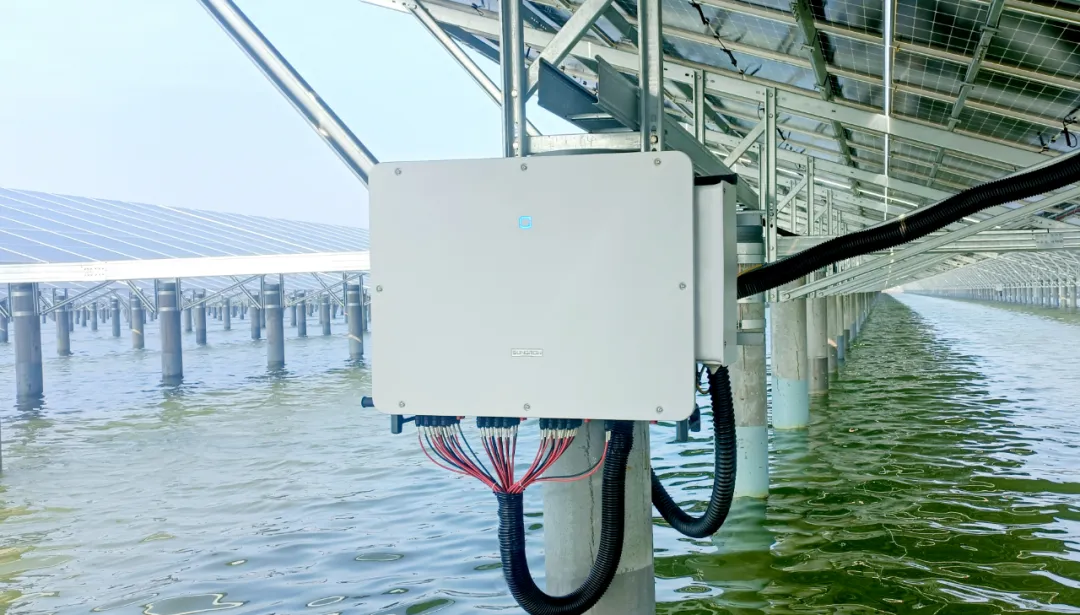
The Solution
Sungrow's high-power string inverters, featuring the industry's highest protection rating of IP66 and C5 anti-corrosion certification, are ideally suited to withstand the highly humid and corrosive conditions of coastal salt farms. Each unit undergoes rigorous extreme testing prior to shipment, enduring 480 hours (20 cycles) of exposure to salt spray at 35°C for 2 hours, high temperature at 40°C for 22 hours, and 93% relative humidity storage conditions—emerging completely unscathed. This ensures utmost reliability and higher operational availability. Furthermore, the equipment incorporates a unique 24-hour AC/DC insulation monitoring function that continuously tracks impedance values, enabling rapid identification of damaged cables. This helps prevent electric shock and fire hazards caused by cable corrosion or deterioration.
The Impacts
Compared to traditional string solutions, the SG320HX increases unit capacity to over 300kW, ensuring full compatibility with the project’s high-wattage bifacial modules. It significantly reduces BOS costs while delivering improved safety, higher reliability, and faster service response. Once operational, the project will generate 1.5 billion kWh of green electricity annually from 20,000 acres of salt fields, reducing carbon emissions by roughly 1.25 million tons—enough to power 1.5 million households. It strengthens North China’s power supply and pioneers an integrated model combining above-water solar generation, surface brine evaporation, and underwater aquaculture.

